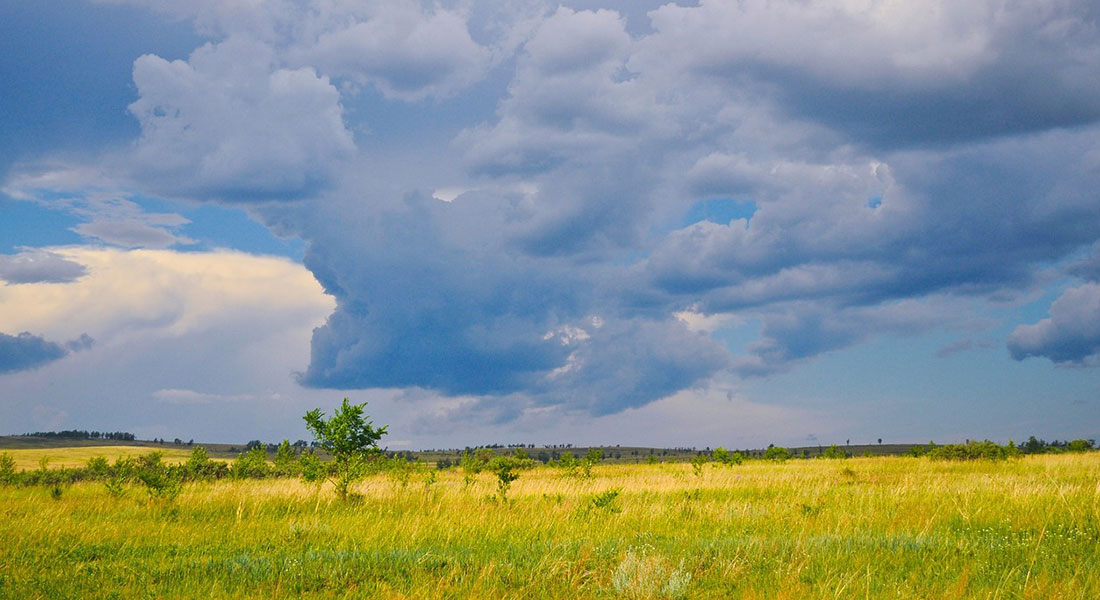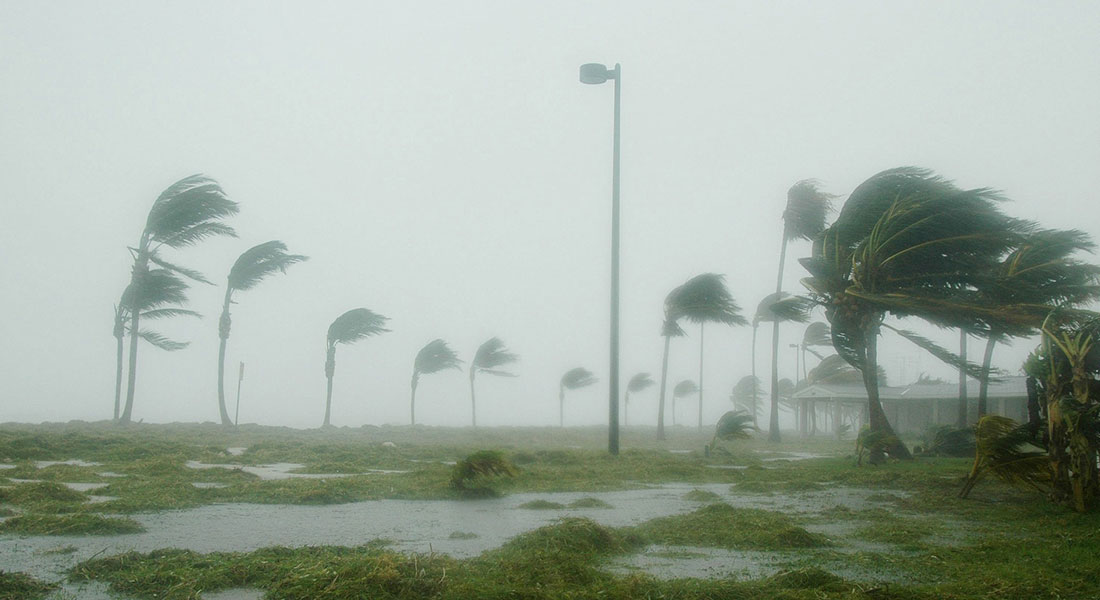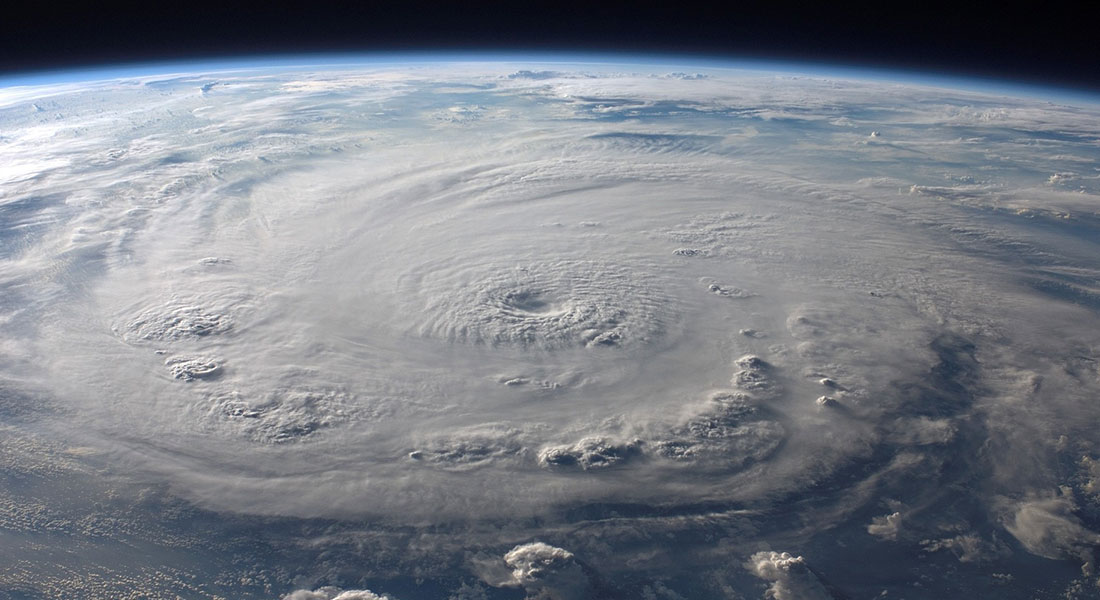Weather and Climate
The atmosphere is a fascinating, dynamic system, which affects and reacts on effects from oceans, the icecaps and glaciers on our planet – it even affects the length of the day. Our main interest in the meteorology group is to understand and develop models of the fundamental physical processes in the atmosphere, these being the key to numerical weather predictions (NWP), climate, air quality and pollution.
Meteorology is an expansive scientific field, which draws on a series of physical disciplines, from geophysical fluid dynamics, thermodynamics and turbulence to optical emission to space. Our observations of the atmosphere are on the technological forefront, due to a strong scientific and technological development in recent years.
The Scientific field
Meteorology is an expansive scientific field, which draws on a series of physical disciplines, from geophysical fluid dynamics, thermodynamics and turbulence to optical emission to space. Our observations of the atmosphere are on the technological forefront, due to a strong scientific and technological development in recent years.
Of particular interest to our research is:
Numerical Methods
We are continuously developing numerical methods and new algorithms, in order to help improve the accuracy and computational efficiency of Numerical Weather Prediction and the climate- and air pollution models.
Climate Models
Simulation of large scale atmospheric dynamics in climate models. The main focus here is to understand why many climate models have problems simulating so called blockings in the atmosphere, which leads to too little simulated variability in coupled atmosphere – ocean climate models.
The Output of Climate Models
Analysis of the output of the climate models, in order to chart and understand both natural and man made climate changes. Besides that, we are applying observations, based on satellite measurements, to be able to validate the physics at the root of the climatic development we detect in the climate models.
The WRF model
Simulations with the so called WRF model for use in wind energy studies. This project is carried out in collaboration with the research group in wind energy at the Danish Technical University. Other projects, where students use WRF for numerical investigation of atmospheric phenomena, are an option too.
Master´s thesis- and bachelor students
Our work is based on theory and numerical simulations of the circulation of the atmosphere and weather. The physics of the climate system in combination with the oceans is also part of our research. If you enjoy physics and mathematics as we do, we would very much like to talk to you, so we can identify an atmosphere/weather or climate physics project. You are also more than welcome to talk to one of the climate- and geophysics students, whom you can find under the heading Groupmembers.
Staff
| Name | Title | Phone | |
|---|---|---|---|
| Search in Name | Search in Title | Search in Phone | |
| Baklanov, Alexander | Professor | +4553826357 | |
| Christensen, Jens Hesselbjerg | Professor | +4535335658 | |
| Hansen, Aksel Walløe | Associate Professor Emeritus | +4535320567 | |
| Häberli, Ruben | PhD Fellow | +4535328635 | |
| Kaas, Eigil | Professor | +4535320514 | |
| Lauritzen, Peter Hjort | Guest Researcher | +4535322770 | |
| Melcher, Jonathan Ortved | PhD Fellow | ||
| Sahyoun, Maher | Postdoc | +4535337206 | |
| Van der Laan, Larissa Nora | Postdoc | +4535333530 | |
| Vang, Andrea | PhD Fellow | +4535332449 | |
| Øelund, Johanne Kristine Haandbæk | PhD Student | +4535329293 |

Using pressure measurements from smartphones
This PhD project is about aggregating and using crowdsourced data for use in numerical weather predictions. Good examples of such data could be private weather stations, wind measurements from handheld units and pressure observations from modern smartphones. This PhD project has a primary focus on the latter.
Modern smartphones come with a built-in barometric sensor, which can detect even minor pressure changes. The sensor is primarily used to identify altitude changes for the user of the mobile device, related to, for example, a run or a bike trip. The data from such a sensor is more accurate than the GPS system and uses significantly less power. This is possible as the pressure decreases with increasing altitude.
The pressure is an essential parameter for calculations related to the weather, and this is the reason why this PhD project attempts to exploit the usefulness of such data. For validation and correction, different types of statistical analysis are applied.
The data is collected from real users through an app for smartphones (iOS and Android). The data is stored on a secure server and is used in this project only. It is not handed on to other parties. The data is anonymous in the sense that no email, name, address or similar related to the pressure observations are known.




